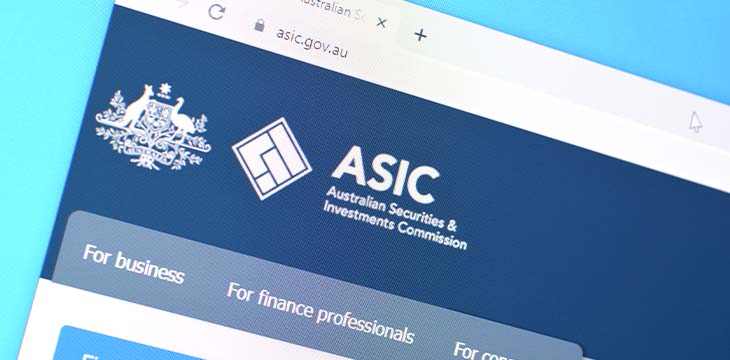|
Getting your Trinity Audio player ready...
|
New regulations in Australia could soon wipe out digital currency influencers, and the companies using them to push their products could also be forced to fork out millions of dollars in fines. The new guidelines put great restrictions on the kind of content that financial influencers can push and impose strict penalties for violators.
The Australian Securities and Investment Commission (ASIC) published a new information sheet recently, laying out the do’s and don’ts for financial influencers, better known as “finfluencers,” a category that encompasses the fast-rising digital currency influencers who push anything from exchanges and wallets to pump-and-dump digital assets and outright scams.
While the financial industry is divided on ASIC’s new regulations and the extent they have gone to protect investors, there is no question that they were long-needed. Investors in the country have been exposed to a fast-rising world of social media influencers, some of whom are pretty resourceful, but many more who push any product or service at a price.
In a 2021 Senate hearing, several stakeholders decried the lack of market protection for investors from finfluencers.
“There is a horrendous amount of uncertainty…there are large groups of people who are vulnerable and are not being protected as the law would intend,” one top lawyer told the Senate. Pointing to one instance in which an influencer had raised $6.8 million for a stablecoin project that didn’t even launch.
The ASIC has now published new guidelines for finfluencers. They include requiring them to become licensed if their content is ‘influencing people,’ a vague description that’s causing even more confusion.
One financial blogger captured the confusion many influencers like him face, stating, “Writing almost anything could influence someone to invest or use any financial product.”
Dave Gow, who runs the Strong Money Australia financial blog, believes this will just turn influencers into robot-like fact-sheets as sharing any opinion or even revealing what products they use could be considered influencing other people’s decisions.
ASIC further prohibits influencers from “presenting factual information in a way that conveys a recommendation that someone should (or should not) invest in that product or class of products.” This, it says, will be conveyed as offering unlicensed financial product advice.
Instead, they should offer “a description of different types of financial products, with no implied recommendation that one is better than another.”
Breaching these regulations comes with stiff penalties. Influencers could face up to five years behind bars, while companies that use them could be forced to pay millions of dollars in fines.
Influencers in Australia, including from the world of digital assets, are in an uproar over the new regulations. In response, the ASIC is offering a simple solution—just get licensed and offer these services as you wish.
“So I should go through a comprehensive training program, pay thousands each year in licensing fees, compliance and running costs, jump through countless administrative hoops, only to turn around and provide exactly the same information as I do now for free?” Gow, the financial blogger retorts.
The directive by the ASIC for influencers to get licensed goes against the reason this group is in such high demand. As Financial Review notes, the target group for influencers is Millennials and Gen Z, young people with just a little to invest and limited knowledge of the market.
Last year, a study by the ASIC revealed that 33% of Aussies aged 18-21 follow a finfluencer and that 64% had heeded financial advice from a finfluencer. This group is unlikely to seek the services of licensed financial advisors, who, according to the outlet, will set them back $3,760 in median fees annually.
The ASIC’s directive to get licensed isn’t even applicable for digital currency influencers. This is because, in Australia, digital currencies are not considered financial products. And while the ASIC cracks down on finfluencers, the government believes that consumers must take responsibility for their own decisions. Jane Hume, the Finance Minister, recently made comments that reveal the government may not be fully behind the new restrictions.
“There’s never an excuse for that [misleading or scamming]. But the existence of a small number of unscrupulous actors doesn’t justify wholesale constraints and policing and freedom of expression for everyone,” she stated.
Watch: CoinGeek New York panel, Government & Public Sector Applications on Blockchain

 03-03-2026
03-03-2026 




